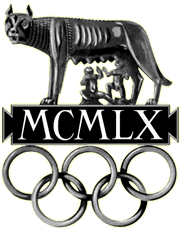 1960 Rome Highlights 1960 Rome Highlights
- Hungary takes home 13 Gold, 16 Silver, and 37 Bronze!
- Men's Fencing Team Hungary wins 9th Gold!
- Fencing Legend Gerevich Aladar
wins RECORD 6th consecutive Gold! A feat not matched until Sydney 2000
- Fencing Great, Kovacs Pal, wins 7th Medal (6th
Gold)!
- Another Fencing Great, Karpati Rudolf, wins
6th Gold!
- Water polo legend Dezso Gyarmati wins an unprecendented 5th medal
at his fifth consecutive Olympics! 1948, 1952, 1956, 1960
- Legendary High Jumper Iolanda Balas takes Gold! (Competing for Rumania)
- Wrestler Polyak Imre sets Olympic Record with 3rd consecutive Silver!
- Men's Soccer Team Hungary takes Bronze
Hungarian Medals!
Medal |
Name |
Event |
|
Iolanda Balas |
High Jump / Magasugrás  |
|
Parti János |
Kayak Canoe / kajak-kenu C-1 1,000 m |
|
Török Gyula |
Boxing / ökölvívás légsúly 51 kg |
|
Kárpáti Rudolf |
Individual Fencing / vívás kard egyéni |
|
Delneky Gábor |
Team Fencing / vívás kard csapat |
|
Gerevich Aladár |
Team Fencing / vívás kard csapat |
|
Horváth Zoltán |
Team Fencing / vívás kard csapat |
|
Kárpáti Rudolf |
Team Fencing / vívás kard csapat |
|
Kovács Pál Ádám |
Team Fencing / vívás kard csapat |
|
Mendelényi Tamás |
Team Fencing / vívás kard csapat |
|
Németh Ferenc |
Modern Pentathlon / öttusa egyéni |
|
Balczó András |
Modern Pentathlon / öttusa csapat |
|
Németh Ferenc |
Modern Pentathlon / öttusa csapat |
|
Nagy Imre |
Modern Pentathlon / öttusa csapat |
|
Polyák Imre |
Wrestling / birkózás kötöttfogás 62kg |
|
Nagy Imre |
Modern Pentathlon / öttusa egyéni |
|
Horváth Zoltán |
Fencing / vívás kard egyéni |
|
Zsivótzky Gyula |
Hammerthrow / kalapácsvetés |
|
Dömölky Lídia |
Team Fencing / vívás tőr csapat |
|
Juhász Katalin |
Team Fencing / vívás tőr csapat |
|
Marvalics Györgyi |
Team Fencing / vívás tőr csapat |
|
Nyári Magdolna |
Team Fencing / vívás tőr csapat |
|
Rejtő Ildikó |
Team Fencing / vívás tőr csapat |
|
Mészáros György |
Kayak Canoe / kajak-kenu K-2 1,000 m |
|
Szente András |
Kayak Canoe / kajak-kenu K-2 1,000 m |
|
Szöllősi Imre |
Kayak Canoe / kajak-kenu K-1 1,000 m |
|
Kemecsey Imre |
Kayak Canoe / kajak-kenu K-4 4x500m |
|
Mészáros György |
Kayak Canoe / kajak-kenu K-4 4x500m |
|
Szente András |
Kayak Canoe / kajak-kenu K-4 4x500m |
|
Szöllősi Imre |
Kayak Canoe / kajak-kenu K-4 4x500m |
|
Kulcsár Gergely |
Javelin / gerelyhajítás |
|
Veres Győző |
Weightlifting / súlyemelés váltósúly 75 kg |
|
Rózsavölgyi István |
Track and Field / atlétika 1500 m |
|
Egresi Vilma |
Kayak Canoe / kajak-kenu K-2 500 m |
|
Bánfalvi Klára |
Kayak Canoe / kajak-kenu K-2 500 m |
|
Farkas Imre |
Kayak Canoe / kajak-kenu C-2 1,000 m |
|
Törő András |
Kayak Canoe / kajak-kenu C-2 1,000 m |
|
Antal Róbert |
Team Waterpolo / vizilabda csapat |
|
Bolvári Antal |
Team Waterpolo / vizilabda csapat |
|
Fábián Dezső |
Team Waterpolo / vizilabda csapat |
|
Gyarmati Dezső |
Team Waterpolo / vizilabda csapat |
|
Hasznos István |
Team Waterpolo / vizilabda csapat |
|
Jeney László |
Team Waterpolo / vizilabda csapat |
|
Kárpáti György dr. |
Team Waterpolo / vizilabda csapat |
|
Lemhényi Dezső |
Team Waterpolo / vizilabda csapat |
|
Markovits Kálmán |
Team Waterpolo / vizilabda csapat |
|
Martin Miklós |
Team Waterpolo / vizilabda csapat |
|
Markovits Kálmán |
Team Waterpolo / vizilabda csapat |
|
Szívós István |
Team Waterpolo / vizilabda csapat |
|
Szittya Károly |
Team Waterpolo / vizilabda csapat |
|
Vízvári György |
Team Waterpolo / vizilabda csapat |
|
Albert Flórián |
Soccer / Labdarugás |
|
Dalnoki Jenő |
Soccer / Labdarugás |
|
Dudás Zoltán |
Soccer / Labdarugás |
|
Dunai I. János (Dujmov János) |
Soccer / Labdarugás |
|
Faragó Lajos |
Soccer / Labdarugás |
|
Göröcs János |
Soccer / Labdarugás |
|
Kovács III. Ferenc |
Soccer / Labdarugás |
|
Novák Dezső |
Soccer / Labdarugás |
|
Orosz Pál |
Soccer / Labdarugás |
|
Pál Tibor |
Soccer / Labdarugás |
|
Rákosi Gyula |
Soccer / Labdarugás |
|
Sátori Imre |
Soccer / Labdarugás |
|
Solymosi Ernő |
Soccer / Labdarugás |
|
Török Gábor |
Soccer / Labdarugás |
|
Várhidi Pál |
Soccer / Labdarugás |
|
Vilezsál Oszkár |
Soccer / Labdarugás |
Search all
1960 medalists (in Hungarian)
|
Featured Olympians
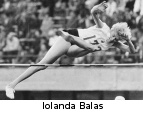 Featured
Olympian, Iolanda Balas: Featured
Olympian, Iolanda Balas:
(b. 12/12/1936 Transylvania)
She dominated like no other...
Iolanda Balas (Balázs Jolán) completely dominated women's high
jumping between 1957 and 1967. Balas, a Rumanian citizen of Hungarian origin born in Transylvania in 1936 (the former Hungarian region transferred to Rumania after World War I at the Treaty of Trianon), was married to her
coach and fellow high jumper Janos Sőtér (Ion Soeter) who died in 1987. Iolanda Balas occupies a special niche
in athletics history, a class apart. For a whole decade she went
unbeaten winning an incredible 140 consecutive
competitions and breaking the world record 14 times, mostly her own.
Her
1961 record of 1.91 metres remained unbeaten for ten years. She
captured Olympic titles in 1960 and 1964 by huge margins, and such was
her supremacy that at the time she cleared 1.91m, no other woman had gone
higher than 1.78m. Some of her luckless contemporaries complained that
they had no chance against her because she was so very tall (1.85m, or
nearly 6ft 1in) with particularly long legs even for that height. But
that physical advantage was largely cancelled out by her inability to
master the more efficient straddle and western roll techniques of the
pre-Fosbury Flop era. She explained: "My style is quite obsolete
but it suits my body structure." She is now a
leading international official.
Read more at the International
Association of Athletics Federations or at the International Olympic
Committee's Olympic
Heroes
 Featured
Olympian, Kovacs Pal: Featured
Olympian, Kovacs Pal:
(b. 12/12/1936 Transylvania (annexed by Rumania)
Winner of 7 Olympic Medals!
Another Hungarian sports legend affected by the border revisions of the Treaty of Trianon, Pal Kovacs was a member of the Hungarian Sabre team that won gold at Berlin, London,
Helsinki, Melbourne and Rome. He also won individual gold in '52, bronze
in '48. He was World Sabre champion in 1937 and 1953. He later became
president of the Hungarian Fencing Federation.
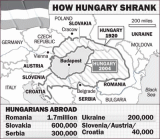 The punitive and ill-conceived Treaty of Trianon cost Hungary 2/3 of her territory and half her population, 1/3 of which were ethnic Hungarian. Not only was a huge pool of athletic talent cut off from the mother country, the now small, weak Hungary would not be able to resist future Soviet expansion. In a twist of Olympic fate, a now Soviet-dominated Hungary would bow to pressure and boycott the Los Angeles Games in 1984. The punitive and ill-conceived Treaty of Trianon cost Hungary 2/3 of her territory and half her population, 1/3 of which were ethnic Hungarian. Not only was a huge pool of athletic talent cut off from the mother country, the now small, weak Hungary would not be able to resist future Soviet expansion. In a twist of Olympic fate, a now Soviet-dominated Hungary would bow to pressure and boycott the Los Angeles Games in 1984.
One
thousand years of nation building successfully delineated groups
in Central and Eastern Europe on culture, religion, geography, and other attributes, creating many historic nation-states. While some Western European
nations would continue power struggles and princely battles and civil
wars, Hungary, founded in 896, was a peaceful multi-ethnic state for a
1000 years and her borders were unchanged.... Until 1920 where new states were drawn by Western powers aiming to expand their own hegemony rather than respect the right to self-determination.
These "Hungarian Olympic Triumph" pages contain many examples of Hungarian Olympic Champions that were born within the boundaries of historic Hungary. But many of these cities, towns, and villages are no longer within Hungary. Historic communities declined. Forced removals such as the Benes Decrees and other pograms, the effects of WWI, and Trianon in 1920 ethnic cleansing, and continued pressure and discriminative policies such as the 2009 Slovak Language Law, continue to take their toll. Ironically, Ferenc Kemeny, one of the founders of the Olympic Movement and the International Olympic Committee's (IOC) first Secretary, was born in Nagybecskerek, Hungary in what is now known as Zrenjanin in the Vojvodina part of Serbia after the Treaty of Trianon.
    
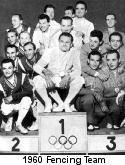 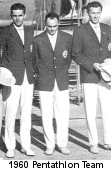
Click for larger images
|



